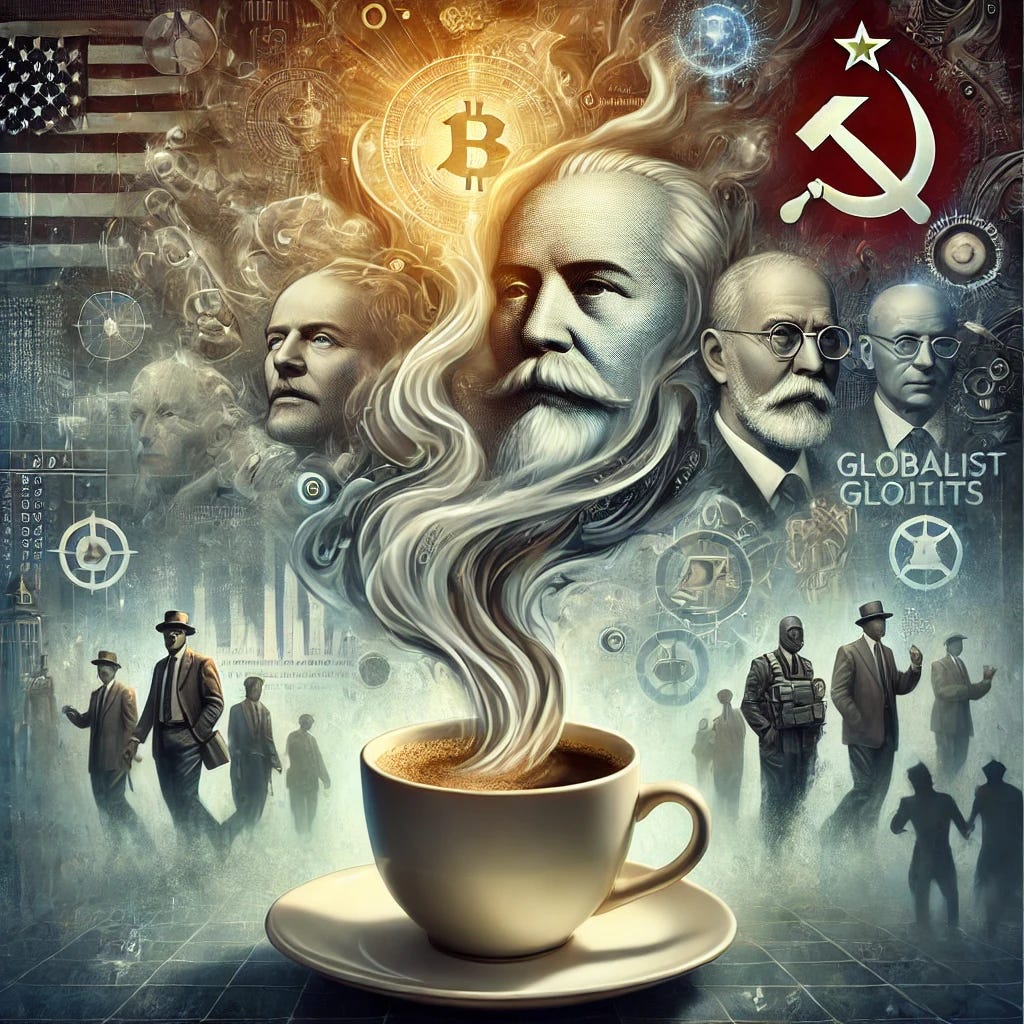The New Vanguard: Arrogance in the Age of Expertise
I am not calling Carney, Trudeau and John Kerry Communists, but some of their arrogance and patronising, "We know what is best for you little people" reminds me of Lenin's arrogance.
If you believe in the importance of free speech, subscribe to support uncensored, fearless writing—the more people who pay, the more time I can devote to this. Free speech matters. I am a university professor suspended because of a free speech issue, so I am not speaking from the bleachers. The button below takes you to that story if you like.
Please subscribe to receive at least two pieces/essays per week with open comments. It’s $6 per month, less than USD 4. Everyone says, “Hey, it’s just a cup of coffee.” (With me, it's not per day but just one per month.) But if you’re like me, you go, “Hey, I only want so many cups of coffee!” I get it.
Have We Been Here Before?
The 20th century was marked by revolutionary upheavals led by vanguards—self-appointed elites who claimed to possess a unique “revolutionary consciousness” that granted them the authority to shape society. They claimed a consciousness, a vision that we plebs (plebs, short for plebeians, originally referred to as the common citizens of ancient Rome, distinct from the aristocratic patricians) did not.
Today, the term ‘pleb’ is often used—sometimes pejoratively—to describe ordinary people rather than elites or ruling classes.
In the Communist tradition, the vanguard was the intellectual and political class that would lead the proletariat out of false consciousness and into a socialist utopia.
Lenin’s Bolsheviks, Mao’s Red Guards, and the intellectuals of the Frankfurt School all saw themselves as the enlightened few entrusted with the destiny of the many.
Critics argue that the Frankfurt School, in particular, a group or school of thought that started in the 1930s at the University of Frankfurt and later relocated to Columbia University, saw the masses as too stupid to think for themselves, making them just as condescending as the elites they criticised.
Their hubris, however, led not to paradise but to purges, famines, and dystopian surveillance states.
One hundred million died because of Communism in the 20th century.1 But such a nice idea.
Today, a New Vanguard has emerged, not as proletarian revolutionaries but as globalist elites—unelected technocrats, bureaucrats, and corporate oligarchs who, like their Marxist predecessors, claim to know better than the people.
Figures like Mark Carney, Steve Bezos, Mark Zuckerberg, John Kerry, Klaus Schwab and Justin Trudeau embody this modern aristocracy. They wield economic, political, and ideological power to reshape society without democratic consent.
Tracing the failures and dangers of the original vanguard can help us better understand the looming perils of its 21st-century iteration.
Elitism and Superior Knowledge
Lenin and the Vanguard
Lenin's concept of the "vanguard party" was rooted in the idea that a small, disciplined group of revolutionary intellectuals possessed the necessary consciousness to lead the proletariat. Lenin argued in What Is to Be Done? (1902):
"The working class, exclusively by its own effort, can develop only trade-union consciousness... The theory of socialism, however, grew out of the philosophic, historical, and economic theories elaborated by educated representatives of the propertied classes, by intellectuals."
This suggests a belief in the intellectual and moral superiority of the vanguard over the masses.
Carney and Trudeau: The Technocratic Class
Modern elites like Carney, Obama, Freeland, Kerry and Trudeau often justify their policies (e.g., climate action, economic reforms) by appealing to expert knowledge and global best practices.
Critics argue that this creates a disconnect between elites and the general population, as decisions are often framed as being too complex for ordinary citizens to understand.
For instance, in 2017, after abandoning his electoral reform promise, Trudeau claimed that implementing a proportional system could “augment extremist and activist voices” and promote instability in the country.
Some saw this rationale as implying that the public couldn’t grasp the complexities or potential consequences of such reforms.
It’s strange how a guy who dropped out of university and barely worked still saw himself as an intellectual titan, but hubris is rarely rational.
Historian Christopher Lasch, in The Revolt of the Elites (1995), critiques this dynamic:
"The new elites... regard the masses with mingled scorn and apprehension... They have little in common with the people they are supposed to represent."





